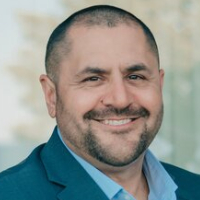
Adopting a code enforcement mindset: Building guardians to create better communities
![]() The goal of safety in code enforcement is to manage and control ourselves and our interactions to create safe situations whenever possible. It is important to realize that government has a great deal of power and with great power comes great responsibility. Code enforcement officers are tasked with using that power to maintain the health, safety and welfare of their communities through code regulations. Often, this creates a focus on enforcement and not compliance. In order to foster community buy-in, create trust and maintain safe encounters a shift in mindset is recommended.
The goal of safety in code enforcement is to manage and control ourselves and our interactions to create safe situations whenever possible. It is important to realize that government has a great deal of power and with great power comes great responsibility. Code enforcement officers are tasked with using that power to maintain the health, safety and welfare of their communities through code regulations. Often, this creates a focus on enforcement and not compliance. In order to foster community buy-in, create trust and maintain safe encounters a shift in mindset is recommended.
The President’s Task Force on 21st Century Policing, which focused on changes to policing, recognized that the idea of “procedural justice” is of utmost importance in building trust and legitimacy. The “guardian mindset” was identified as a guide towards supporting procedural justice, fostering community trust and contributing toward gaining compliance. A guardian is a defender, protector or keeper in their responsibilities. Code enforcement officers are exactly that.
The Guardian Mindset
Treat people with dignity and respect.
Give individuals a “voice” during encounters.
Be neutral and transparent in decision-making.
Convey trustworthy motives.
Watch your thoughts and remain objective and unbiased.
The guardian mindset teaches them to think of themselves as guardians, instead of warriors, who protect the communities they are sworn to serve. The recommended goal is to gain compliance through empathy, trust and communication while using enforcement as a respected tool. When used properly, the following guidelines will advise code enforcement officers in the use of discretion and authority to promote a safe outcome.
AWARENESS: Know your role in your department and your mission statement. Compliance is the goal and enforcement is the tool. Understand what your mandate, duties and authority are. Each one of them differs depending on the job, and some may come with more potential risk than others. However, each should be treated with the same respect for safety and preparedness.
FOCUS: Distractions, boredom, routine or fatigue can lead to accidents and other safety hazards. Take good care of yourself. Getting plenty of rest and staying alert may prevent accidents and incidents.
STRENGTH: Have the strength to do the right thing even when it’s not easy. Never take yourself too seriously. I have experienced this within myself and in other officers. Letting our power and authority go to our heads can create conflict.
PATIENCE: Take the time to do things correctly every time. Many of our cases can be dealt with at a different time. If there is a stressor or safety hazard, consider delaying or canceling the visit. Listen to your senses, no code violation is worth compromising your safety.
Citizens will support code enforcement action and contribute to the solvability of violations to the extent that they believe the code enforcement officers’ actions are legitimate and just. Moreover, agencies can foster community involvement by understanding the importance of quality-of-life issues and listening to the perspective of those in the community.








